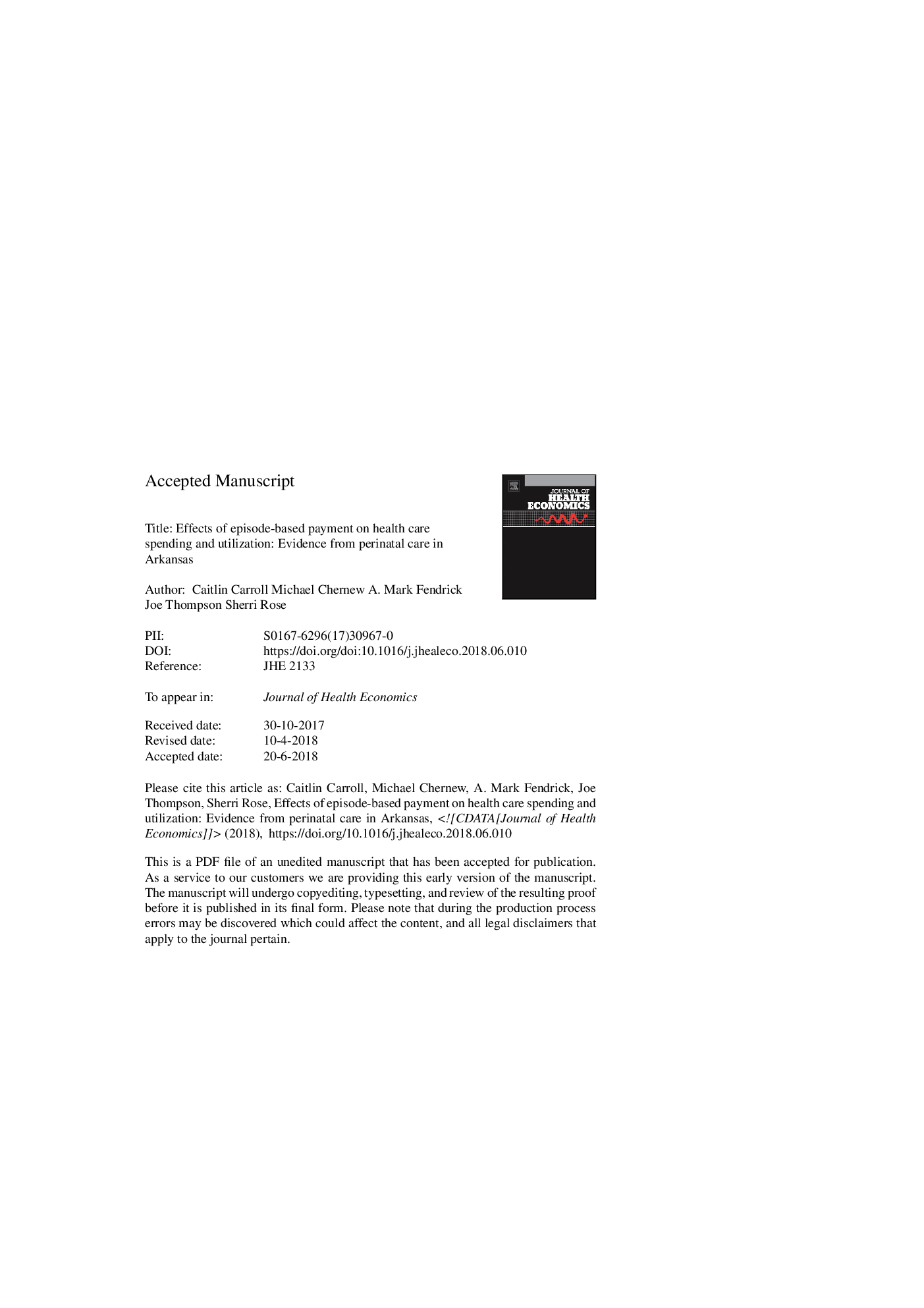| Article ID | Journal | Published Year | Pages | File Type |
|---|---|---|---|---|
| 7362619 | Journal of Health Economics | 2018 | 59 Pages |
Abstract
We study how physicians respond to financial incentives imposed by episode-based payment (EBP), which encourages lower spending and improved quality for an entire episode of care. Specifically, we study the impact of the Arkansas Health Care Payment Improvement Initiative, a multi-payer program that requires providers to enter into EBP arrangements for perinatal care, covering the majority of births in the state. Unlike fee-for-service reimbursement, EBP holds physicians responsible for all care within a discrete episode, rewarding physicians for efficient use of their own services and for efficient management of other health care inputs. In a difference-in-differences analysis of commercial claims, we find that perinatal spending in Arkansas decreased by 3.8% overall under EBP, compared to surrounding states. The decrease was driven by reduced spending on non-physician health care inputs, specifically the prices paid for inpatient facility care. We additionally find a limited improvement in quality of care under EBP.
Related Topics
Health Sciences
Medicine and Dentistry
Public Health and Health Policy
Authors
Caitlin Carroll, Michael Chernew, A. Mark Fendrick, Joe Thompson, Sherri Rose,
